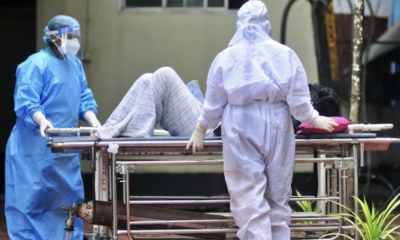Policy and Regulations
Lack of Women Candidates in LS Elections: The Quantum Hub’s Factsheet Reveals Startling Numbers
The Quantum Hub, a prominent public policy research and consulting firm based in New Delhi, has shed light on a concerning trend in Indian politics. Their recent release, the second part of a 4-part series of factsheets on ‘Women in #Elections2024,’ reveals that nearly a third of the constituencies in Phase 1 and 2 of the Lok Sabha Elections have zero women candidates.
The factsheet, which focuses on the number of women candidates and their presence in the upcoming General Elections of 2024, highlights that out of the 2831 candidates in Phase 1 and Phase 2 of the LS elections, only 237 are women, constituting a mere 8.3% of the total candidates. This statistic is particularly alarming considering the support for a 33% representation of women in the Lok Sabha, a cause that has not translated into a significant increase in women candidates.
In comparison, in the 2019 Lok Sabha elections, around 9% (726) of all candidates were women. Despite this, the representation of women candidates in the LS elections has historically risen, it has never crossed 1000 candidates in any LS election.
Tamil Nadu, Karnataka, and Maharashtra emerged as the states with the highest number of women candidates in a single LS Constituency. However, out of the 237 women candidates, 92 belong to unrecognised parties, followed by 87 independents. National Parties have fielded 46 women candidates, while state parties have fielded only 12 women candidates in the first two phases.
Karur constituency in Tamil Nadu stands out with the highest number of women candidates, with 1 representing a national party and 6 independents.
Aparajita Bharti, Founding Partner at TQH consulting, expressed her concerns, stating, “The low number of women candidates in this election too points to the need for quick implementation of one-third reservation of constituencies for women. Without such affirmative action, it seems impossible to increase women’s representation at all levels of legislatures.”
She added, “The nature of competitive politics favours men organically as they are able to spend more time away from their families, have more control over assets and have higher agency in making career decisions. Women need a leg up to be able to catch up with men in political representation.”
The series by TQH aims to unveil 4 different parts observing women electors in the 2024 elections. Part three will focus on “Women in Manifestos,” covering key promises for women by different parties qualitatively. Lastly, part four will examine voter turnout among women and any other significant trends observed during polling.
As India gears up for the General Elections of 2024, the need for increased representation of women in politics is more pressing than ever. The findings by The Quantum Hub serve as a stark reminder of the challenges women continue to face in breaking through the political glass ceiling.








































